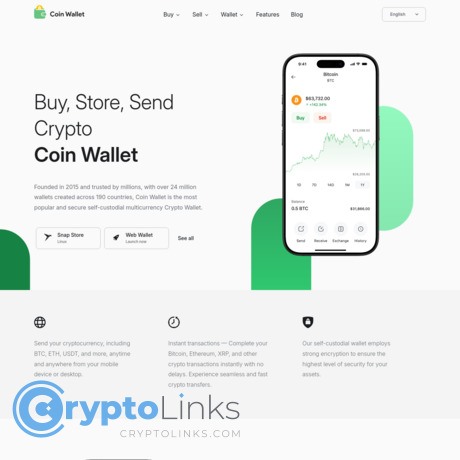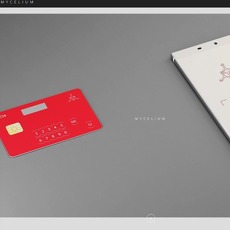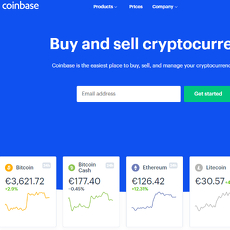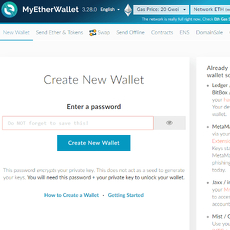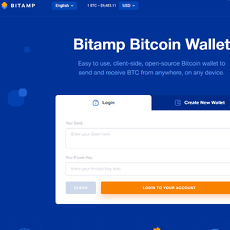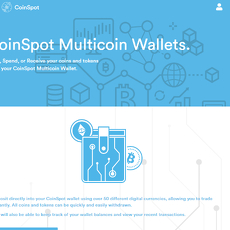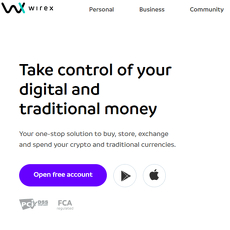Coin Space Wallet Review
Coin Space Wallet
coin.space
Coin Wallet Ultimate Review Guide: Is Your Crypto Really Safe?
Thinking about keeping your cryptocurrency secure but still easy to access? Or maybe you're overwhelmed looking at all the options for crypto wallets out there? Let’s make it simple. You’ve probably heard of Coin Wallet, but what makes it stand out? Is it the right option for you to store your digital fortune? Let’s break it down together.
Why choosing the right wallet is a big deal
Here’s the thing: picking the wrong wallet could cost you everything. Seriously, a poorly designed or unsecured crypto wallet can expose you to hackers or cause your funds to disappear without a trace. A good wallet isn’t just about storing cryptocurrency; it’s about trust, reliability, and peace of mind.
The risks of unsafe wallets
Ever heard stories of people losing their crypto to shady wallets or getting hacked? Unfortunately, it happens more often than you think:
- Hacking: Some wallets lack strong encryption, making it easier for hackers to break in. The result? Goodbye, Bitcoin or Ethereum. A study by CipherTrace revealed that over $3 billion in crypto was stolen in 2022 due to vulnerabilities such as these.
- Private key exposure: Without proper security, your private key — the “password” to your funds — might get exposed. And once that happens, anyone can access your wallet.
- Data phishing scams: Many wallets have poor phishing protection. This can leave users vulnerable to fake login pages that siphon away their credentials.
Not to scare you, but crypto wallets aren’t toys; the stakes are high. This is why choosing wisely can mean the difference between thriving in crypto or becoming a cautionary tale.
What does Coin Wallet promise?
So, where does Coin Wallet fit into all this? It claims to solve these risks while offering a wallet that’s safe, stylish, and user-friendly. The platform positions itself as a secure home for your crypto, allowing users to keep control of their funds without breaking a sweat.
But can it truly protect your assets from theft while being easy to use for beginners? Does it simplify crypto management, especially if you’re tired of juggling multiple wallets for different cryptocurrencies?
If that sounds like something you’d love to know, then we’ll explore all that in the next section. Keep reading – you won’t want to miss the key details about what makes Coin Wallet different from the rest!
What is Coin Wallet? Introducing the platform
Imagine having a single, secure spot for all your cryptocurrency needs – that’s the promise of Coin Wallet. It's designed like your digital Swiss army knife for managing crypto, making it simpler, safer, and even enjoyable for both new and seasoned users.
The core concept: A secure place for all your crypto
Let’s get straight to the heart of it. Coin Wallet believes in one fundamental goal: keeping your cryptocurrency safe and easily accessible. Whether you’re sending, receiving, or just storing your assets, it gives you the tools to stay in control and out of trouble.
Picture this: You’re working across Bitcoin, Ethereum, and maybe even dabbling in smaller altcoins. What if you could manage all of them in one seamless, user-friendly platform? With Coin Wallet, you can. It’s designed to simplify your crypto life while giving you peace of mind about security.
“Simplicity is the ultimate sophistication.” – Leonardo da Vinci
It’s true, isn’t it? In the complex world of cryptocurrencies, a wallet that focuses on simplicity can truly feel like a lifesaver.
Does it support multiple currencies?
If you’re trading or investing in more than one token, this next thing will get you pumped. Coin Wallet doesn’t just support Bitcoin or Ethereum; it covers a wide range of currencies. You’re looking at an impressive list, including Litecoin, Bitcoin Cash, Ripple, and even less mainstream cryptos.
As crypto continuously evolves, having a wallet that grows alongside it is key. Coin Wallet’s ability to adapt and include new currencies positions it as a strong option for users who want flexibility. You won’t need five different apps just to manage your portfolio—it’s all in one place.
How does it stand out compared to others?
Here’s the big question: Why should you care about Coin Wallet when there are so many other options out there?
- No third-party risks: This is a self-custodial wallet, meaning you, and only you, have access to your private keys. Unlike exchange wallets, Coin Wallet eliminates that additional layer of risk involving third-party breaches.
- Incredible ease of use: Some wallets require a degree in rocket science to figure out. Coin Wallet’s user interface is sleek, intuitive, and set up for anyone—whether you’re a crypto newbie or a seasoned trader.
- Ultra-lightweight app data: Don’t you hate wallets that drain your device storage? Coin Wallet keeps things lightweight without sacrificing functionality, ensuring your phone or desktop won’t feel bogged down.
- Private transactions: Concerned about privacy? Coin Wallet ensures that no sensitive user data is stored during transactions, keeping everything between you and the blockchain.
It stands out because it doesn’t just focus on adding flashy features—it focuses on creating an efficient, secure ecosystem that works equally well on desktop and mobile.
Feeling curious? That’s the point. Coin Wallet seems promising, but the features are what truly make or break a wallet. Coming up, we’re going to explore those standout features and see what really sets it apart. Wouldn’t you love to know if there’s an integrated exchange or how easy it is to set this wallet up?
Features that stand out with Coin Wallet
In the crowded universe of crypto wallets, finding one that truly makes your life easier is rare. But Coin Wallet seems to have cracked the code with features that are both practical and exciting. Let’s break it down and see what makes this wallet worth considering.
Built-in exchange functionality explained
Ever wished you could trade cryptocurrencies without navigating through multiple platforms? Well, here’s the good news: Coin Wallet offers an integrated exchange feature powered by ShapeShift. This can be a game-changer for people who want ultra-convenience and speed.
Here’s how it works: you can swap your Bitcoin for Ethereum, Litecoin, or other supported assets directly within the wallet. No need to move funds to external marketplaces, risking delays or extra fees. It’s like having a mini exchange sitting right in your pocket. Imagine deciding to diversify your holdings during lunch, clicking a couple of buttons, and voilà—done!
For those who’ve found traditional exchanges intimidating or time-consuming, this feature feels like a breath of fresh air. It eliminates extra steps and lets you stay focused on what matters—growing your crypto portfolio with ease.
Easy setup and user-friendly design
Let’s be real—crypto wallets can feel like they’re designed by tech geniuses for tech geniuses. But Coin Wallet proves that it doesn’t have to be that way. The wallet prides itself on being beginner-friendly without sacrificing any power for advanced users.
From the moment you open the app, it feels intuitive. Think of it like organizing your digital finances with the same simplicity as sending a text. Every step, from setting up your wallet to sending or receiving crypto, feels natural and hassle-free.
One user shared, “Setting up Coin Wallet was easier than signing up for Netflix.” And let’s face it—if something is simple enough to set up on-the-go without a tutorial, you’ll probably end up using it more often. It’s designed for people who want efficiency with minimal learning curves.
Multi-platform availability
Flexibility is key in a fast-paced world, and Coin Wallet doesn’t disappoint here either. Whether you’re a mobile-first user or someone who spends most of their time on a desktop, this wallet has you covered.
Coin Wallet supports:
- iOS and Android for those on the go
- Desktop versions if you’re old-school or simply prefer a bigger screen
What’s great is that all versions are synced seamlessly. So, if you start a transaction on your phone but need to jump to your desktop for final confirmation, no problem—it’s all connected. This kind of flexibility makes you feel in control whether sitting at your desk or waiting for coffee at Starbucks.
“Your wallet should work where you do—not the other way around.” – A satisfied user
Knowing that your assets are accessible anytime, anywhere, is incredibly liberating, especially in the round-the-clock world of crypto where timing really matters.
But fancy features and easy interfaces mean nothing if security isn’t up to par. So, how does Coin Wallet stack up in keeping your hard-earned assets safe? Stick around, because the answer might just change how you think about crypto security.
Is Coin Wallet Safe? Security Explained
Let’s face it—if your crypto wallet isn’t secure, everything else about it doesn’t matter. It’s like having the shiniest door in the neighborhood with a lock that anyone can pick. So, how does Coin Wallet ensure your funds and personal info stay locked down tight? Trust me, security isn’t just a checkbox for this platform; it’s a whole mindset.
Encryption Standards and Private Keys
Here’s the backbone of Coin Wallet’s security framework: top-notch encryption and private keys. Coin Wallet uses advanced encryption algorithms, which essentially turn your sensitive data into unintelligible code. Even if a hacker got their hands on it, without the decryption key, they’re staring at a mess of unusable data. Pretty comforting, right?
What’s more, your private keys—those magical codes that give you sole access to your funds—are stored locally on your device, not on some shaky cloud server. This means even if Coin Wallet’s servers faced an attack (unlikely, but hey, this is crypto, anything is possible), your keys remain completely in your control. As the saying goes,
"Not your keys, not your crypto."
Coin Wallet embraces this idea fully.
Biometric Authentication and Passwords
There’s more to security than just encryption. For mobile and desktop users, Coin Wallet takes it further with things like biometric authentication. On supported devices, you can enable fingerprint or facial recognition to access your funds—giving you that sweet mix of convenience and security.
And passwords? Coin Wallet makes sure you aren’t using some lazy, "password123" nonsense. During setup, it prompts you to create a strong password, and honestly, if you haven’t made password security a priority in your life yet, now’s the time. For even better safety, consider using a password manager—that’s pro-level stuff right there.
Additional Safety Tips for Wallets
Coin Wallet ticks a lot of security boxes, but let me hit you with some pro tips that go beyond just the wallet itself:
- Always back up your wallet’s recovery phrase. If you lose access to your wallet, this phrase will be your lifeline. Store it offline, preferably on paper, somewhere safe.
- Avoid public Wi-Fi for transactions. You’d be surprised how easy it is for hackers to snoop on open networks.
- Enable two-factor authentication (2FA) wherever possible. Sure, it might take two more seconds, but it’s worth it for an extra layer of safety.
- Consider getting a hardware wallet for long-term storage of large amounts of crypto. Think of it like a cold, unreachable vault for your wealth.
- Stay updated on your wallet’s software. Hackers love old, outdated systems because they’re easier to exploit.
Security is one of those things you don’t think about until it’s too late. But with tools like Coin Wallet, plus a little effort from your end, you can stay ahead of the curve. Isn’t your peace of mind worth it?
If security made you feel warm and fuzzy inside, wait until we check out how Coin Wallet stacks up against other big names out there. Could it be the best wallet for you? You might be surprised when you see the comparisons ahead.
How does Coin Wallet compare to others?
The crypto wallet space is an ocean filled with choices, and picking the right one can feel like finding a needle in a haystack. So, how does Coin Wallet stack up against some of its biggest competitors? Let’s break it down with real facts, expert opinions, and insights from actual users. Spoiler alert: there’s something here no other wallet quite achieves the same way.
Difference between Coinbase Wallet and Coin Wallet
One of the biggest questions people often have is how Coin Wallet differs from something like the Coinbase Wallet. The answer is all about control. To put it simply:
- Coinbase Wallet: It’s directly integrated with the Coinbase exchange, offering a sleek experience for buying, selling, and managing your funds. However, it’s worth noting that Coinbase also has visibility into your activity since it’s tied to their ecosystem.
- Coin Wallet: This is a pure self-custody wallet. It means one thing: your keys, your crypto. Coin Wallet doesn’t rely on an exchange platform for storage or management. You are entirely in control — no middleman and no prying eyes.
To help you decide, ask yourself a critical question: Do I want convenience tied to an exchange or true independence with my assets?
Reviews from users and experts
It’s one thing for the wallet’s website to hype itself up, but what do everyday users and crypto experts actually think?
Here’s a quick summary of sentiment from people who have tried Coin Wallet:
- Users love the sleek interface: "It’s like using Apple — simple, intuitive, and everything just works the way you expect," said one reviewer on Reddit’s crypto forum.
- Security is a standout: Multiple reviews highlight the wallet’s focus on privacy and security, with private keys never leaving your device. Experts also praise the implementation of AES-256 encryption, which is considered a gold standard in the industry.
- A few wishful features: Some users pointed out that while Coin Wallet nails the essentials, it doesn’t yet have some advanced features like staking support, which wallets like Exodus offer.
As they say, no wallet is perfect. Still, Coin Wallet seems to strike a careful balance between ease of use and robust security, making it a trusted choice for many.
Competitor comparison highlights
Now, the real showstopper: how does Coin Wallet stand when compared to other popular wallets like Trust Wallet or Exodus? Here are some interesting highlights:
- Against Trust Wallet: Trust Wallet is known for its wide crypto support and built-in staking options. However, Coin Wallet wins on ease of use for beginners. Trust Wallet’s interface can feel cluttered if you’re new to the game, whereas Coin Wallet keeps it clean and simple.
- Against Exodus: Exodus is loved for its design and desktop integration. Still, not everyone agrees with its lack of open-source transparency. Coin Wallet, by contrast, maintains a strong reputation for being open-source and having no hidden data-sharing practices.
- Cross-platform convenience: Unlike some wallets that offer certain features only on one platform (e.g., desktop or mobile), Coin Wallet provides a consistent experience on both. That convenience can’t be overlooked!
Here’s the bottom line: if you care about independence, simplicity, and trust, Coin Wallet has some real advantages. Sure, it may not come packed with absolutely every feature on the market, but that’s part of its charm — no fluff, just what you really need to manage your crypto.
"Compare not to compete, but to understand. The right choice for you depends on what you truly value." – Anonymous
So, how do you actually get started with Coin Wallet? Setting up doesn’t have to feel like climbing Mount Everest. Stick around, because up next, we’ll take a closer look at the most beginner-friendly setup process and some must-know tips to hit the ground running.
Getting Started with Coin Wallet
So, you’ve decided to give Coin Wallet a shot. Awesome choice! Whether you’re new to crypto or a seasoned investor, getting started can feel a bit overwhelming. But don’t worry, I’ve got your back. Let’s break down the setup process and make sure your first experience with Coin Wallet is smooth as butter.
Step-by-Step Setup Process
Don’t be intimidated by the idea of setting up a new wallet. Coin Wallet makes it surprisingly simple. Here’s how you can get started:
- Step 1: Download the app – Head over to the official Coin Wallet website or your app store, and download the app for your platform, whether it’s iOS, Android, or desktop. Always ensure you’re downloading from the official site to avoid malicious clones.
- Step 2: Create your wallet – Open the app, select “Create a new wallet,” and set up your password. Make this password long, unique, and secure—it’s your first line of defense.
- Step 3: Back up your recovery phrase – Here comes the critical part. You’ll be given a recovery phrase (usually 12 or 24 words). Write this down on paper and store it somewhere safe, like a secure lockbox. Losing this phrase means losing access to your funds forever.
- Step 4: Add funds – Transfer some crypto from an exchange or another wallet. Coin Wallet supports a variety of currencies, so you should be good to go no matter what you hold.
- Step 5: Explore the features – Once your funds are in, you can start experimenting. Try sending a small test transaction or using the built-in exchange feature to see how it works.
By the end of these steps, you’re ready to manage your crypto with ease. It’s really that simple.
Tips for Smooth First-Time Use
Here’s something I’ve learned from experience: first impressions matter, especially when it comes to your wallet experience. Keep these tips in mind to avoid headaches:
- Double-check addresses: When sending crypto, wallet addresses can’t be undone. Always copy and paste addresses instead of typing them, and check twice before hitting send.
- Start small: Test the waters by sending a small amount of cryptocurrency first. It’s a great habit to get into with any transactions, no matter how experienced you are.
- Keep software updated: Updates often come with added security patches and new features. Make sure your Coin Wallet app is always on the latest version.
- Learn the basics: If this is your first time using a wallet, take a moment to understand transaction fees and network confirmations. Knowing how these work can save you some stress.
Following these tips can save you a whole bunch of stress later on!
Troubleshooting Setup Issues
Here’s the thing—technology isn’t always perfect, and you might hit a snag during setup. But don’t sweat it; there’s usually a quick solution to most problems. Here are some common issues users face and how to fix them:
- Can’t access the app? – Make sure you’re using the latest version of the app and that your device software is compatible. Sometimes, a good old restart works wonders!
- Recovery phrase not working? – Double-check the order and spelling of each word. Recovery phrases are extremely sensitive, and even one typo can prevent access.
- Funds not showing up? – Be patient! Crypto transactions can take some time depending on network congestion. If it’s been over an hour, check the transaction ID on a blockchain explorer.
- Forgot your password? – If you’ve backed up your recovery phrase (and you should have!), you can restore access by re-importing your wallet into the app.
Still stuck? Coin Wallet offers robust community and support links right on their site. Reaching out for help is always an option.
“The journey of a thousand miles begins with a single step… unless you forget your password. Then you might have to start over!”
The ease of setup and troubleshooting says a lot about Coin Wallet’s focus on user experience. But now you're wondering, what about when you're facing specific wallet-related questions? Don’t worry—I’ve got those answers coming up next!
FAQs about Coin Wallet
Let me guess—you’ve got questions buzzing around in your head about Coin Wallet. That’s totally normal. Picking a wallet isn't just a technical choice; it's a personal one. There's trust involved, and more importantly, your hard-earned crypto is at stake. So, let's cut through the noise and answer the questions people often ask when they're trying to figure out if Coin Wallet is the right pick.
Is Coin Wallet better than [competitor]?
This is probably one of the most Googled questions in the wallet world. Comparing wallets isn’t always a straightforward "this one is better" kind of thing—it depends on what you're looking for. For example:
- Trust Wallet offers solid support for NFTs, something Coin Wallet currently doesn’t prioritize.
- Exodus Wallet is favored by desktop-first users who love sleek designs, though some argue that its mobile app isn’t as smooth as Coin Wallet’s.
- Coinbase Wallet, on the other hand, ties into the massive Coinbase ecosystem, but you're stepping into an ecosystem that’s far less private compared to Coin Wallet since it’s exchange-tied.
Coin Wallet really shines when you’re after a no-nonsense, self-custody wallet that supports multiple coins and doesn’t bombard you with extra features you’ll never use. Its built-in exchange adds a layer of flexibility that competitors don’t always match seamlessly. Think of it this way: if you're about simplicity, multi-coin support, and keeping things under your control, you'll find Coin Wallet worth considering. But hey, every wallet has its strengths. Are you team control, or do you prefer flashy features? That’s the question to ask yourself.
“Choosing a wallet is like picking a travel companion. The right one makes the journey exciting, safe, and hassle-free. The wrong one… well, it's a trip you'd rather forget.”
Can Coin Wallet users swap coins easily?
Short answer: Yes, and it’s a big deal. Coin Wallet integrates a brilliant built-in exchange powered by ShapeShift. What does this mean for you? No more endless clicking and logging into a separate exchange just to swap your crypto. Here’s how it works:
- You select the coins you want to swap. For example, you’ve got Bitcoin, but you need a bit of Ethereum.
- The wallet takes care of the heavy lifting using ShapeShift, finding you a trade rate without exposing your identity or requiring a lengthy process.
It’s kind of like placing an order through a drive-thru window, but instead of burgers and fries, you’re ordering Bitcoin and Ethereum. And let's be honest—less time on external exchanges equals less chance of exposure to risks like phishing scams. Plus, who has the patience for dozens of tabs these days?
Will I lose funds if I forget my password?
This is the kind of "what if" that can keep anyone awake at night. Here’s the good news: Coin Wallet doesn’t lock you out entirely if you lose your password. Instead, its security setup revolves around recovery phrases. When you first set up the wallet, you’re provided a 12- or 24-word seed phrase. This is your ultimate lifeline.
But let me insert a personal thought here: Treat that phrase like a ticket to a million bucks. Write it down, store it somewhere ultra-secure, and never share it with anyone. If anyone gets hold of it, they effectively have the keys to your crypto kingdom.
Here’s where it gets tricky, though: If you lose your password AND your recovery phrase, there are no do-overs. Seriously, it’s gone forever, and there's no customer support hotline to save you (this is by design—nobody, not even Coin Wallet, has access to your funds). So, back up your seed phrase. Scratch that, triple back it up. A little paranoia in this area is healthy.
If you’re not sure how to safely keep your recovery phrase or want specific examples of tools to use for this, don’t worry—we’ll be exploring some essential resources and tips in the next section.
Resources to Explore Further
When you’re stepping into the fascinating but sometimes tricky world of cryptocurrency wallets, having reliable resources makes all the difference. Whether you're curious about other user experiences, the latest updates from developers, or seeking trusted reviews, there are plenty of awesome places to check out for deeper learning. Here’s where Coin Wallet shines thanks to its transparency and connected community. Let me walk you through some go-to options that’ll keep you informed and ahead of the game.
Developer and Community Links
One of the most reassuring things about any crypto wallet is knowing the team behind it is active, accessible, and continuously improving the product. Coin Wallet doesn’t keep users guessing! They’ve got an official support platform brimming with FAQs, troubleshooting tips, and discussions to solve common problems — all without unnecessary drama.
You’ll also want to keep an eye on their developer updates. These often have the latest info about wallet improvements, feature rollouts, or even future plans. Following their official site and community links is a no-brainer if you want to stay on top of things.
And don’t overlook online crypto forums and communities like Reddit. You’ll find threads about Coin Wallet where users actively share everything from their setup hiccups to successful transactions. It’s one of the best ways to gauge the real vibe around a wallet beyond polished marketing pitches.
If you’ve read this far, you’re probably serious about choosing the right wallet for your crypto journey. But there’s more you’ll need to think about to ensure it aligns with your personal needs. So what’s next? Let’s answer the most burning question in the final part: Is Coin Wallet really right for you?
Final thoughts: Is Coin Wallet right for you?
Choosing the perfect crypto wallet can feel like a huge decision, but the truth is, it all comes down to what works best for you, your goals, and your comfort level with security. Let’s wrap this up by breaking down who might benefit the most from Coin Wallet, what could be improved, and how to decide if it’s the right fit for managing your crypto.
Who should use Coin Wallet?
Let’s keep it simple: Coin Wallet is designed for anyone who values a mix of simplicity and security. If you’re looking for a user-friendly wallet that doesn’t overwhelm you with complicated setups yet still prioritizes keeping your funds safe, this wallet ticks those boxes.
It’s especially great for people just starting in crypto who might not be ready for more advanced options like hardware wallets. The easy interface, multi-platform availability, and built-in exchange are excellent for beginners who want convenience without sacrificing control.
But let’s not leave out the more experienced crowd. Advanced users who want a practical, straightforward solution for managing multiple cryptocurrencies will appreciate how Coin Wallet stays out of their way while doing exactly what they need. It’s portable, customizable, and versatile enough to be a solid everyday option.
What’s still missing?
No wallet is perfect, and it’s fair to point out areas where Coin Wallet could step up its game. While its features shine in many areas, some users might find there’s room for improvement.
- Deeper integration with DeFi: Though the wallet offers a built-in exchange, it doesn’t yet have robust integrations with decentralized finance platforms. Many advanced users might miss having smoother access to staking, lending, or DApps directly through the wallet.
- Hardware wallet compatibility: While Coin Wallet prioritizes security, integrating with hardware wallets like Ledger or Trezor would add an extra layer of protection for those with a larger stash of crypto.
- More detailed recovery options: Although the importance of keeping your seed phrase safe is emphasized, having more dynamic recovery options (without compromising security) could make it even more user-friendly for folks worried about losing access to their funds.
- Enhanced customization: Giving users the ability to tweak display options or create custom transaction workflows could boost its appeal for power users who like more control over their experience.
Of course, full transparency is essential, and I believe these areas of improvement don’t overshadow the wallet’s many excellent features. In fact, they could represent exciting opportunities for future updates.
Ready to explore Coin Wallet?
At the end of the day, the best wallet is the one that fits your personal needs. If Coin Wallet sounds like the kind of tool that could make managing your crypto easier and safer, why not check it out? You can explore everything it offers over at Coin Wallet’s website. Remember to always take your time when researching. It’s your money, and protecting it with the right tools should always be a top priority.
Take it step by step, stay informed, and don’t rush your decision. Whether you go with Coin Wallet or another option, understanding how wallets work and applying best practices for securing your crypto will give you peace of mind in this fast-paced digital economy.
Conclusion
To wrap up, Coin Wallet certainly makes a strong case for itself as a reliable, user-friendly, and secure option in the crowded crypto wallet market. It’s a great choice for many users, but as always, your wallet should align with your specific needs and goals. Stay smart, stay curious, and most importantly, stay safe when managing your digital treasure.

